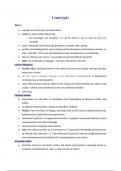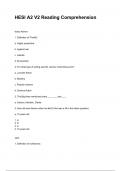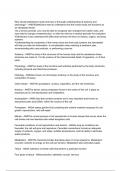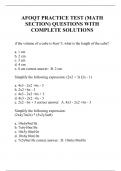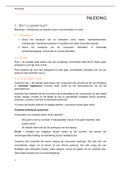Samenvatting
Summary Concept list with detailed definition for exam Intersectionalities: Race, Gender, and Sexuality
- Instelling
- Universiteit Van Amsterdam (UvA)
I GOT 8.3 FROM THE EXAM. Concept list (that was sent by professor Sarah Bracke) with my own detailed definitions based on the course readings and lectures. Definitions also include what authors specifically said about given concept. Check out my other note with detailed readings summaries and notes...
[Meer zien]
